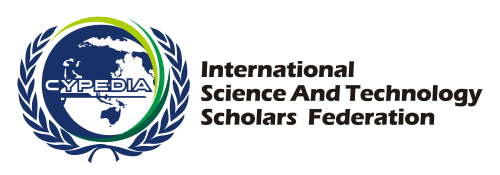The Contribution of Generative Artificial Intelligence to Higher Education in Mozambique

Abstract
The rise of Generative Artificial Intelligence (GAI) is transforming the teaching and learning process, reshaping the traditional relationship between students and educators. Tools like ChatGPT enable real-time generation of texts, images, videos, and responses, fostering more personalized, interactive, and accessible learning experiences. However, alongside these benefits, significant challenges emerge—such as inaccuracies in generated content, student overreliance on AI, and a decline in critical thinking. Many learners tend to accept AI outputs uncritically, which may compromise learning quality. In this evolving educational landscape, educators are no longer faced with the choice of whether to use these tools, but rather how to integrate them ethically, responsibly, and pedagogically. This study aims to explore the role of GAI in higher education, examining its contributions to the teaching and learning process. A qualitative approach was adopted through a structured literature review. The research included peer-reviewed articles from databases such as Google Scholar, Scopus, SciELO, and Web of Science, as well as reports from international conferences. Findings indicate that GAI is increasingly used in higher education for academic writing, research support, audiovisual content creation, and independent study. The study concludes that, when guided by sound pedagogical practices, GAI can enhance learning by promoting autonomy, personalization, and engagement.
Keywords
Generative Artificial Intelligence, Higher Education, Personalized Learning, Educational Technology, Digital Ethics
References
- [1] Harari, Y.N., 2019. 21 Lessons for the 21st Century. Elsevier: Alfragide, Portugal. (in Portuguese)
- [2] Ngoenha, S., 2022. Chronicles of Pandemic Times. Fundação Fernando Leite Couto: Maputo, Mozambique. (in Portuguese)
- [3] UNESCO, 2024. Guide to generative AI in education and research (Education 30). Available from: https://unesdoc.unesco.org/ark:/48223/pf0000390241 (cited 1 April 2025). (in Portuguese)
- [4] Kaufman, D., 2018. Will artificial intelligence surpass human intelligence? Estação das Letras e Cores: São Paulo, Brazil. (in Portuguese)
- [5] Ngoenha, S., 2024. From Wesselia to Wesselia. Editora Fundza: Maputo, Mozambique. (in Portuguese)
- [6] Oliveira, A., 2025. Generative artificial intelligence. Fundação Francisco Manuel dos Santos: Lisboa, Portugal. (in Portuguese)
- [7] Santaella, L., Kaufman, D., 2024. Generative artificial intelligence as the fourth narcissistic wound of humans atrizes. 18(1), 37–53. DOI: https://doi.org/10.11606/issn.1982-8160.v18i1p37-53 (in Portuguese)
- [8] Davenport, T.H., Mittal, N., 2022. How Generative AI is Changing Creative Work. Available from: https://hbr.org/2022/11/how-generative-ai-is-changing-creative-work (cited 1 April 2025)
- [9] UNESCO, 2019. Beijing Consensus on Artificial Intelligence and Education. Available from: https://unesdoc.unesco.org/ark:/48223/pf0000372249 (cited 1 April 2025). (in Portuguese)
- [10] Aguirre, U.J.C., 2024. Possibilities between Mathematics Education and Generative Artificial Intelligence (GAI) in the classroom. Available from: https://www.sbembrasil.org.br/eventos/index.php/sipem/article/view/453/353 (cited 1 April 2025). (in Portuguese)
- [11] Soares, A.A., 2024. Artificial intelligence in higher education: A survey on impacts and perceptions.In: Bié, A.J. (eds.). Explorando 2: Horizontes Científicos em África. Isuresearch: Maputo, Mozambique. pp. 51–57. (in Portuguese)
- [12] Gonçalves, F.B., Gonçalves, V., 2023. Artificial intelligence language models: The path to development or regression for education. In: Montenegro, C., Rocha, A., Lovelle, J.M.C. (eds.). Management, Tourism and Smart Technologies – ICMTT 2023. Springer: London, UK. pp. 56–66.
- [13] Giraffa, L., Kohls-Santos, P., 2023. Artificial intelligence and education: Concepts, applications, and implications for teaching. Educação em Análise. 8(1), 116–134. DOI: https://doi.org/10.5433/1984-7939.2023v8n1p116 (in Portuguese)
- [14] Instituto Nacional de Estatística, 2017. IV General Population and Housing Census: Socio-demographic indicators. Available from: https://www.ine.gov.mz/web/guest/d/iv-recenseamento-geral-da-populacao-e-habitacao-2017-indicadores-socio-demograficos-mocambique_(cited 1 April 2025). (in Portuguese)
- [15] Santos, A., 2023. Challenges and opportunities of artificial intelligence in education and training. READ – Revista de Educação a Distância e Elearning. 6(2).
- [16] Freitas, E.L.S.X., Bittencourt, I.I., Isotani, S., et al., 2023. Offline artificial intelligence for education: A path to a more inclusive field. Revista Brasileira de Informática na Educação – RBIE. 31, 307–322. DOI: https://doi.org/10.5753/rbie.2023.3156
- [17] Mussa, S.L.J., 2023. Impact of artificial intelligence on Mozambican universities: Challenges and opportunities. (in Portuguese)
- [18] Faustino, F., Constantino, S., Gonçalves, B., 2025. Artificial intelligence in education: Challenges and implications for the school environment Revista Edapecci. 25(1), 94–102. DOI: https://doi.org/10.29276/redapeci.2025.25.119860.94-102 (in Portuguese)
